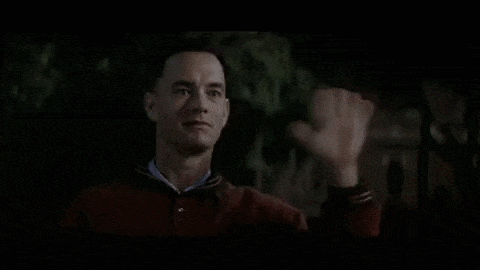Podcasts are all the rage. Seems like every celebrity has one and more businesses are getting in on the action. But just because you can do a podcast doesn’t always mean you should.
If you’re considering starting a podcast or even have one in the works, I highly recommend watching this edition of the Wellspring Digital Chat with podcast veterans, Chris Brogan and Kerry O’Shea Gorgone!
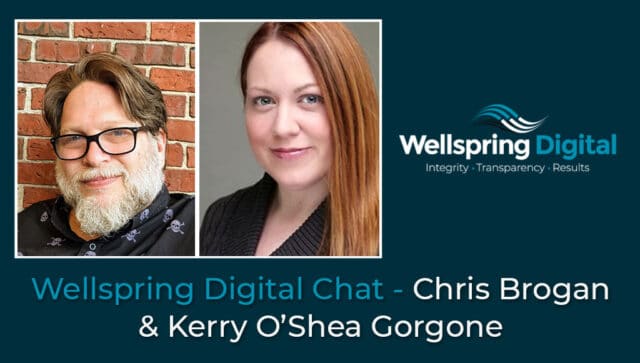
In this episode, we discuss…
- The Backpack Show – Chris and Kerry’s podcast
- Will podcasts kill blogs?
- Being human, fun, and natural on your podcast
- How to roll with challenges on a podcast
- Live versus recorded podcasts
OK, let’s jump in…
Digital Transcription (Edited for Readability)
Introductions
Jon-Mikel Bailey: Hi, I’m Jon-Mikel Bailey, and welcome to Wellspring Digital Chats where we go out into the wild with various teams of people heavily armed. We capture some of the best marketing people we can find. We track them, we take them to a secure location for a little while we feed them, we take good care of them, we extract information out of their brains. And we share it with you.
Yeah, everybody has the same reaction. Wait a second, what did I sign up for? So today we have the duo behind the wildly popular podcast The Backpack Show, which I highly recommend and I will link to in the show notes. I have my hands full today. This is my first two-guest show. So I will try to manage and manage it as best I can.
So I’ve been a fan of Mr. Chris Brogan since I read Trust Agents years ago, and Kerry has been the voice of the Marketing Smart podcast on MarketingProfs for years and she kicks all sorts of ass. She’s one of my very favorite legal marketers, legal lawyer slash marketer slash actress slash rapper. There you go.
So anything I missed, please guys, introduce yourself to these fine, folks. Kerry…
Kerry O’Shea Gorgone: I’m brand new to the company, AppFire as of yesterday, I’m the senior editor and writer. They’re creating a new content hub for AppFire app users, of which there are many, many. So I’m excited about that. Still doing The Backpack Show, of course, and also Punch-Out with Katie and Kerry, which is all about hobbies and how people spend their off-hours.
Chris Brogan: Besides The Backpack Show, I run a small business education company called Owner Media Group, and on the other side of that I am a large business strategic advisor. So I work on company guidance on where are we heading? Should we acquire people? Should we go public?
You know, all these kinds of big things that CEOs end up having to think about. I help them kind of walk backwards through that and avoid the potholes that happen along the way. Currently doing that sort of stuff for this company that Kerry works for now.
Jon-Mikel Bailey: Cool. Little crossover
Kerry O’Shea Gorgone: Working on book number 10. Mr. Brogan.
Chris Brogan: That’s 11 at the same time, it’s a terrible thing. Don’t ever write two books at once. It’s you basically right now either.
Jon-Mikel Bailey: But that’s crazy. 10 books. Okay. Let’s take a moment for that one. Like I said, I’ve been following you guys for years. And I want to take this opportunity. You guys. Your careers have been varied and storied and full of all kinds of great stuff. But I really want to take this time to talk to you about podcasting because I feel like you guys get podcasting more than most, especially in the business world, but also just in general.
The Backpack Show – Chris and Kerry’s Podcast
Jon-Mikel Bailey: First and foremost, I mean, it, can you know, you’ve been doing podcasting for forever, but The backpack show is relatively new, is that correct? Last year’s year? Okay. Can you give me a bit of the history of The Backpack Show? How did how, what did it start as what did it? What was the idea in the beginning? And what has it sort of evolved to today?
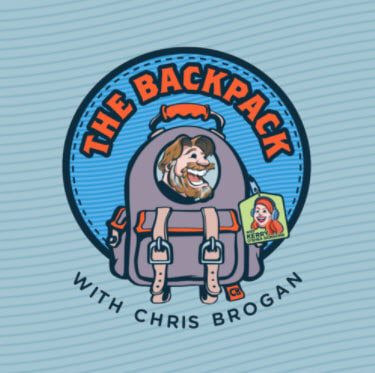
Chris Brogan: So at the very, very, very beginning of the pandemic, it dawned on me, oh, gosh, I’m not going to be speaking professionally on a whole bunch of stages, I’m not going to get the roaring accolades of the crowd, I’m not going to have that great experience of imparting my will on several 100 or sometimes 1000 people at a time.
I just then get myself in front of a lot of people quickly now, what do I do? And so I thought, I’ll launch a little video show. And so I was looking at the fact that so many people are, we’re going to be in quarantine, and they’re gonna be isolated. So I thought, well, what’s the opposite of the word isolation? I asked Google, and they said connection.
So I wrote “point of contact.” That’s what I made for a show. I did that for a very short amount of time. And I thought, well, I could probably be a little nicer and fancier than this. I made a new version of the show called The Ketchup Show, being clever because I could draw a bottle of ketchup with my head on it, you know, but I’d be “catching up” with people I know.
But then I ran out of people I know. So I decided to make a different kind of show. And meanwhile, Kerry had been so active in the comments on The Ketchup Show like I would say something kind of fleeting and she’d research and put up real information and I said to her, “Hey, come make this show with me like that would be really cool.”
And she thought I met like backstage and whatever. And on the very first day of The Backpack Show, I made her the co-host and she was always the host thereafter. And now it’s kind of like her show and she lets me participate. That’s The Backpack Show is where we look for insights from unusual places. And that’s what we’ve been doing for years finding unusual places.
Kerry O’Shea Gorgone: The really funny thing about it was that I knew most of the people you were talking to on Ketchup. That’s how I knew all this random stuff about them and could be like “Hey, did you know that he once did this weird thing like went to clown college and that’s how I knew because I know other people too.
So The Backpack Show, we weren’t talking to any of those people it was like blow that all up. No more marketing people are like few and you know, go dream up some new people that we can learn from and so it’s not like I knew anything about humanitarian clowns. I just wondered if they existed. I wanted to talk to a dominatrix. I wanted to talk to a nun. Like it just it became this opportunity to talk to people that I before had only imagined what their life is like.
Jon-Mikel Bailey: So Kerry is kind of like, like in the typical rock star-like Behind the Music series, Kerry’s kind of like the guitarist that comes to the lead singer of a band after the show and says, “you know, your lead guitarist was kind of rushing a bit in the second song I wouldn’t have done that. I would have shredded that song.” So Kerry’s like the ax that comes in and saves the band and makes it wildly popular. Is that a fair assessment?
Kerry O’Shea Gorgone: No, I feel more like Courtney Cox in that famous video where she gets a call from the audience. But then she becomes Courtney. Like that.
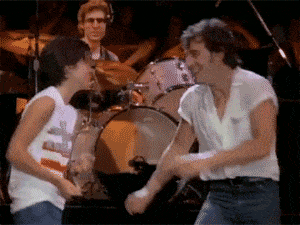
Chris Brogan: That’s, that’s funny. I was gonna go with your analogy. I was gonna be the guest. She’s like Jay JayFrech, Twisted Sister. Everyone else, “Dee Snider is the band” and it’s really Jay Jay.
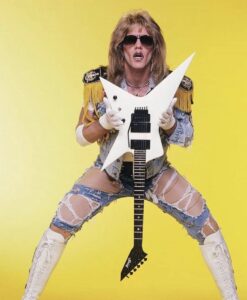
Kerry O’Shea Gorgone: I’m not though. Think about it. I was there hanging out, like watching and I just happen to know a bunch of stuff. And I reached out to you and you. Yeah, in the dark with me.
Jon-Mikel Bailey: You’re lucky I don’t force you to stand up and go back there behind yourself and do a little to do anything.
Kerry O’Shea Gorgone: You may try. That’s really the reason why.
Will Podcasts Kill Blogs?
Jon-Mikel Bailey: So you guys have been podcasting for years. I mean, as far as I understand, probably much longer than, you know, your typical Dax Shepherd. You know, before the whole podcasting craze has caught fire, thanks to, I don’t know, Joe Rogan, or who the hell ever.
But I wonder, I’ve been thinking and this show is a pandemic podcast, you know, it was kind of like, I wasn’t speaking either. And I thought to myself, well, all these keynotes are stuck at home, I wonder if I could get them to talk to me on video, and make a podcast out of it. And that’s how this thing happened.
So, you know, I wonder as all these podcasts are getting popular, video and audio versions both? Is this the future? I mean, are blogs gonna die? the written word, is it gonna die? And everything’s gonna have to be fed to various audiences via video and audio?
Chris Brogan: Blogging has been dead since the 90s. Every time something new shows up, it’s dead again. I started podcasting in 05. I was early, I made a show called Fat Guy Gets Fit because I figured if I never got fit, I’d be okay. And then I launched an event called PodCamp with Christopher S Penn where I remember it had a lot of people. But nothing’s ever killed.
The other thing is text is still alive. Everything else is still alive. So it’s just a matter of we shifted the thing that’s going to work for us right now. Now, when people suddenly aren’t home and locked in a home, are they going to keep listening and watching shows? Because they’re going to be back in a mixed office? Or are they going to start reading again?
Jon-Mikel Bailey: Do you get more out of podcasting than you do out of say, just general writing, in terms of just the experience and the interaction? And I mean, it seems to me that it brings the audience in more when you’re just having a conversation, you’re being more human than it is when you’re sort of writing at them. If that makes any sense at all.
Kerry O’Shea Gorgone: It creates a different relationship. I think, you know, people who come to The Backpack Show feel like they know us and in a lot of ways they do and the moment that they see our holy unscripted and a lot of times what I have said that no retrospect, but so they’re getting like the unvarnished truth about me in a way that you won’t probably I mean, it depends how much you edit your stuff.
What you’re editing, you’re writing it for. But I would say, on the whole, you get at least a somewhat edited polished version when you’re writing no matter how unvarnished you try to be because I edit while I write.
Being Human, Fun, and Natural on Your Podcast
Jon-Mikel Bailey: Your all’s podcasts are very natural. Like you said, they’re holy, what do you say “holy, unscripted.” You know, and you do them live, which I think is, is, you know, ballsy. But you know, for the average business marketer looking to start a podcast, which is who I’m kind of talking to. I’m the digital marketing guy who’s going in and talking to businesses, and they say, “well, we should start a podcast.”
And, I wonder, how do they get to the point where they’re feeling confident, they’re feeling natural or feeling comfortable enough to do this? I mean, is it time Is it practice? Is there some other formula? Or are they taking it too seriously?
Do you have any advice for them in terms of how to come at this podcasting thing, so it doesn’t just end up another, another business-killing another format, for, I don’t know, traffic or whatever?
Chris Brogan: There’s room for a billion business podcasts to be ignored. So it’s okay. You can make as many really bad business podcasts as you want. However, there’s an opportunity for interesting things to happen.
And there’s a video a YouTube video show I watch right now, this guy, Tom Bilyeu, and Tom was the guy who had he made Quest Bars, you know, that nutrition supplement bars, and sold that company for gazillions. He’s worth 400 or so million. And so he has this show called Impact Theory, where he interviews all kinds of famous and rich people that, you know, billionaires and all these kinds of types.
And he didn’t have to write like he made all his wealth, he could just sit around on a boat or eight boats or whatever people with money do? I don’t know. And he did that. And the reason he did that is because he wanted to learn more. And he had all kinds of curiosities and questions, the way to get someone to really want to make a great podcast is for them to have curiosity.
I mean, Kerry, you launched the Punch-Out Show, talk about why you launch that show, because to me, it’s like a super, it’s not an intuitive thing to do. But it’s like the best podcast.
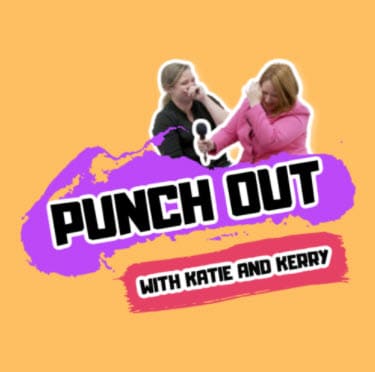
Kerry O’Shea Gorgone: I was talking to marketing people for MarketingProfs every single week for years and learning so much. But every once in a while, they were talking about something totally unrelated to marketing, and I really wanted to talk about it. And I thought it would be a really interesting conversation to talk about it.
But it ain’t the everything else podcast. It’s the Marketing Smarts Podcast. And so I was like, not wedded necessarily to a script, I never have scripted, but to a topic. And so I had to talk about marketing, aspects of marketing, whatever.
I couldn’t go down that road, you know, couldn’t talk about the time that they moved to Singapore for a girl and got dumped and ended up becoming a street magician or something. I was like, “Oh, my God, that’s like all I want to talk about it.”
So anyway, so I started the Punch-Out Show with Katie Robbert, who’s the CEO over at Trust Insights, so that we could talk about only everything else. We call it the muffin top of podcasts, because we don’t talk about work at all, we introduce the person, we never come back to the work they’re doing.
It’s entirely how they spend their off-hours, volunteering, hobbies, you know, whatever weird collections, they have stuff like that. That’s the good stuff that you really want to talk about. But you can’t, when you’re sure, about one specific, narrow aspect of the person’s life.
Jon-Mikel Bailey: And I’ll be honest with you, that’s where I’m struggling right now is I really want to talk about marketing, I love marketing, I love digital marketing. And that’s what this show is really about is trying to get guests who are just giants in the industry. But I don’t want to just sit here and talk like marketing metrics, you know, the whole time.
So I’m trying to kind of get more comfortable with this as we go along. And so I have been watching shows like yours and others where it sort of breaks out of that mold of just question and answer. And, and, and basically not the same questions.
Kerry O’Shea Gorgone: Jon, if you’re asking the same questions as everybody else get the same answers everybody else gets. You have now the same show everybody else has. So yeah.
Chris Brogan: And by the way, it’s not, like you said, you know, marketing is boring. It’s not even the marketing metrics are boring. I mean, Christopher Penn, he and I, we’re in Sweden in a room and he goes, “Hey, want to see a kind of cool thing you could do with Google, and right types of search thing?”
And next thing I know, I have a list of emails that I didn’t have before that I could at least legally invite to get my newsletter and add them to my newsletter. But it’s out there on the open wide web that I can message him, so why not message him? And he showed me that, I was like, “That’s amazing!”
And like, you know, there’s always things. There’s stuff in Google Analytics that if you knew you might go, “Oh, well, maybe I will make a change in my life, right? So there’s stuff to be excited about, but it’s just like what Kerry said, though, if it’s the same questions, if it’s the same format, if heaven forbid, you kind of get the same guests all the time, then the problem is that we’ve all heard each other speak.
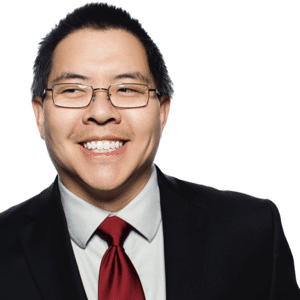
And so it becomes another question of like, how are you going to get to a new layer? If you only had 1000 bucks in two months to bring up some number in a company’s marketing system? What would you do? Like that would be kind of a fun show, I’d watch that show.
Kerry O’Shea Gorgone: And I like marketing enough to talk about it, by the way, every week for like, eight years. I mean, there’s plenty to talk about. You have whatever you pick to talk about. You’d better like it. Whoever you choose to talk about it with you’d like them to agree.
Jon-Mikel Bailey: And by the way, this mic, this is a Chris Penn “buy this mic.” Okay. Yes, sir, Chris Penn, I will do everything you told me to do because you’re the smartest man I know.
How to Roll with Challenges on a Podcast
Jon-Mikel Bailey: I remember listening to an interview. And this is where I think a lot of podcasts struggle is they don’t know how to how to be sort of natural with their guests or just engaging. And I remember listening to an interview, and this is nothing on Mitch Joel. I think Mitch Joel is awesome.
But when you guys, I think you had just come out with Trust Agents, or maybe the Impact Equation. I can’t remember. But you and Julian Smith were on his podcast. And Julian was in a cab. And it was really, it was a struggle. And I could tell Mitch was a little thrown by it, but he powered through like a champ. I mean, that’s gonna happen.
And so how, you know, how do you guys prepare for that? You know, how can someone prepare for someone throwing that curveball to them?
Chris Brogan: When you run a show, it is amazing. What can happen with guests. The first person Kerry, I thought it was Lisa, what’s her face who went from being Lisa Klink, she went from being this Star Trek fan, imagine that she’s like a Star Trek fan. She loves Star Trek. She sends him a script and instead of what every person in the world should do is write back and say, “Sorry, we can’t even look at this.”
They basically said, “Oh, my gosh, you are kicking butt.” And they let her write Star Trek for like seasons. Like, you know anybody’s dream. So that’s the story. You want to know the podcast and the like.
And, we had that we fairly recently interviewed of all things and Irish Shepherd, because you know, why not? And her audio and everything went crazy. Her bandwidth died pretty much, “oh, yeah. cuz she’s in Ireland. You know, she’s in the hinterlands with a bunch of sheep we made out of wool.”
Jon-Mikel Bailey: Or Wi-Fi is just antennas like, like, strapped onto sheep walking around the countryside point to point.
Kerry O’Shea Gorgone: I love when it’s usually fine. You’re like, Well, what do you usually do and nothing? Probably, yeah. We did hers. And it was actually it was much better. She had a mic and everything was fine.
But no, I mean, you just do it every day. You see about every way things can go wrong. You just get used to it. It’s like saying stuff is rolled out. Here we go. Yeah, usually I do. Because I will get a little more stressed out about it. So some people get grumpy, Jon. That’s all I’m saying.
Jon-Mikel Bailey: Some people do. You know, it’s hard. It’s hard to really buy that some people get grumpy when they’ve got Kermit the Frog sitting on the shelf behind them.
Chris Brogan: Oh, well, they do. I also have Batman. I mean, okay, there’s the duality.
Jon-Mikel Bailey: Okay, I got you. Yeah, I interviewed Amber Naslund. And I’m gonna go ahead and say it was the best interview I’ve ever done in my life. It was amazing. I was engaging. I was funny. I was asking fantastic questions. We were just back and forth banter was fantastic. And I forgot to record it. Oh.
Kerry O’Shea Gorgone: Everybody does it once. Everyone. And I think well, in your mind that’s now become like the greatest interview you ever did because you cannot listen to it again. If you listen to it again, you might have been like, “Oh, you know, it’s alright.” But it’s taken on this mythological quality now.
Jon-Mikel Bailey: Well, I play in a band and I have these porch sessions. I live on a farm and I have a porch. My drum set is basically out front on my porch all summer long, which drum purists are probably mad at me for because it’s not good for the drums, but I don’t care.
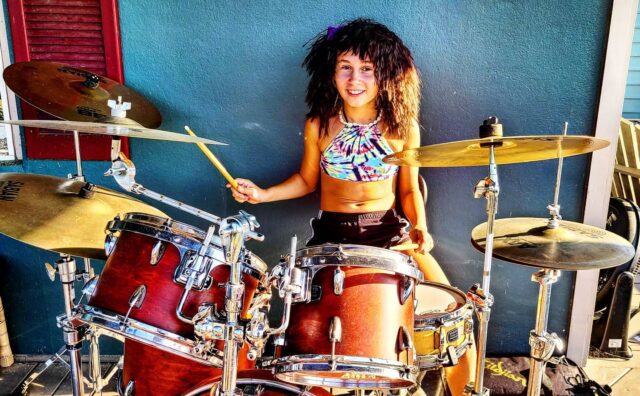
But anyway, we try to record the songs as we play them. And it’s always you know, we play. “Oh, that was amazing.” And then, crap. I forgot to hit record, every time. Every time.
Live Versus Recorded Podcasts
Jon-Mikel Bailey: So your podcast is streamed live. I know for many businesses and thinking about podcasting and going live, some are adventurous and some want to do it. Most I would imagine it’s probably likely very terrifying.
Is there an advantage to this? This podcast is recorded and I edit it, and I take my time and I transcribe it. And I put it up when I’m ready and all that, but you guys…
Kerry O’Shea Gorgone: We didn’t even say the stuff that you’re gonna hear on this. He like, put it together.
Chris Brogan: That’s not what we said.
Jon-Mikel Bailey: I edited out all the bad words.
Chris Brogan: Construct sentence? No, it’s, there are a few ways to go about it. So the reason I like live is because I hate editing. Kerry is an incredible editor. Kerry takes out all the ums and the ahs and everything. You sound amazing on Kerry’s Show.
But I don’t I do live because then when I’m done, it’s done. The show is live, you know, it’s the recording is sitting there and all the various places, and it’s what you get.
But a lot of companies like you said, have issues with that. And a lot of companies really want that sense of control, and they want to have a chance to edit. There’s neither a right nor wrong answer. However, if you have a staff of one whole human, just remember that all that editing starts to back up, all that editing gets more and more backed up.
And then you have to contemplate paying someone to do it. And then you have to think, “Oh, is this really even worth it?” And so whichever way is going to get it published is the real answer. Whichever way gets you published sooner. And more frequently, that’s the answer.
Kerry O’Shea Gorgone: And ask yourself also what the added benefit is of taking out all the ums and the ahs and making it perfect? Do more people listen to it know they’ve made the decision to download it or not? Or watch it or not already. So you’re really just making that one person feel a tiny bit better. It’s, it’s not worth the time it takes to do right.
Jon-Mikel Bailey: Right. Do you guys feel that, you know, I get kind of hung up on the whole thing about the length of the podcast and whether it’s live, and whether it’s recording, and what’s the best formula?
Do you feel like it’s better to just go at it from your strengths and understand what you’re going to do best and how you’re going to engage with people best? And just damn the formulas and damn the metrics and damn the stats and what everybody says is the best way to do it. Or is it somewhere in between?
Kerry O’Shea Gorgone: Chris jumps out of the plane and then it’s like, “Hey, toss me a parachute.”
Chris Brogan: You don’t have any in your arms? Yeah, exactly.
Kerry O’Shea Gorgone: You can just put your shirt open and gracefully to the ground.
Chris Brogan: I suppose in a cartoon. I think that there’s I don’t know the best way. I mean, we ran the show for a year, we had the same numbers we have a year ago. So I’m clearly doing something stupidly wrong. Kerry keeps pointing out that like, you know, it’s gonna take a little while because it’s a different group, different format.
And we’re very connected to all our marketing turd head friends. And we made a show that is not meant to appeal to marketing turd heads. So right to do. So. There’s that. And Joe Jaffe, who’s another fellow podcaster, who has his show, which I forget the new name of it. Joe Jaffe Is Not Famous, I think it’s called.
He keeps saying, like, we’re just waiting for Viacom or someone to find us. And then we’re gonna do great. But it’s, I don’t know, I don’t know anything about the stats and numbers stuff. What I don’t worry about so much is length except to know that we’ve done all the lengths, we’ve done reasonably brief. We’ve done an hour we’ve done everything in between and can’t tell you.
The reason audio shows like Joe Rogan’s show were for several hours is a great lot of people who like that show. Also like getting high, it gives them two hours worth of stuff to get high about well, not asked with nothing else to do. But even Tim Ferriss has a super long show and did for a very long time, I can never just consume the show.
But I love that he has an app with all kinds of, you know, clips to exactly the spots you want to learn or whatever. I feel like Tim Ferriss has the most value in a business interview than a lot of people. But there’s no way I could endure the timestamp.
So yeah, that’s the one kind of cool thing in this medium is that there are tools that exist that make it so you could annotate and make it the kind and size and style of show that more than one person would want. If they want to invest just a tiny bit to be a different kind of consumer of it.
Kerry O’Shea Gorgone: And it depends a lot on who’s listening and what their situation is. Like in 2005, I had a podcast about pregnancy. And then when I had the baby, it was about having a baby. And so a lot of times people sitting at home with a new baby they want to listen.
So I was getting emails about “hey, can you make it longer?” Let’s do it longer. Do it. We’ll do more of them. And that was purely situational. And you know the need for that information at that time was great.
Jon-Mikel Bailey: That’s kind of how I come at it is, you know, it’s a conversation. And the thing I like most about podcasts and listening to podcasts is that they have a natural sort of flow. I think Mark Maron is brilliant at it. He just comes at it, you know, he has it, he has a great back and forth. And then at the end, he’s like, I’m done. Okay, we’re done. Thank you.
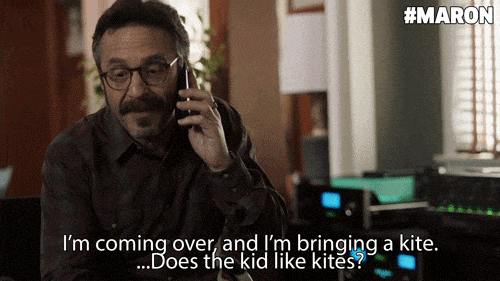
You know, and it’s the natural end of the conversation, it sort of had its ups and downs and ebbs and flows, but it felt like a real conversation, it felt like you were sitting in a room with a couple of people, just having a chat.
And that’s what appeals to me most about podcasts and most about, you know, formats like yours. I was trying to get a podcast started for a client and they kept sending me these business podcasts, and they were boring as hell and there’s great information in there.
But I’m like, I don’t want to sit through this for 30 minutes. And I don’t know if there’s a solution to that. And maybe the solution to that is just to be more real.
Kerry O’Shea Gorgone: It depends, in part what you’re using it for. Right? So yeah, for one thing, a lot of those podcasts can be really good raw material to create other content, which if you’re using it for business is a great thing.
So you can create lists and infographics and articles and all kinds of stuff for if you’ve got somebody dedicated whose job it is to take that raw material and kind of shape it and distill lessons from it. I mean, then it’s valuable, apart from the other thing is the network that you build while doing it.
Like you pointed out, right? You want to talk to a bunch of keynotes. So you started a podcast, there is the network that you build doing it. So now they’ll have a warm, fuzzy feeling about you the next time for your name, and now they feel like they know you a little bit of a jackass that forgot to hit record.
So apart from the success or failure of the vehicle itself, are the relationships you build by doing it, which is worth, I think, more than any outcome for the podcast itself, because relationships will outlast it.
Chris Brogan: Sure. And again, to your point about like, “Who needs to consume it?” 106 million years ago, when I was listening to the pod tech network, John Furrier. John Furrier was interviewing guys like Jonathan Schwartz, who ran Sun Microsystems, which was a company at one point.
And I was working in technology, and I was getting stuff from that podcast that I was bringing into meetings. And the information was new to the sales guy from Sun, like I got it from his CEO on a podcast and brought it to him in an incredibly fun way. And so like, I didn’t care what the link to that was.
It turned out there was stupid brief, but it also most definitely was just a massive wealth of info. So it definitely matters. Who’s going to receive the info what they’re gonna do with it, like Kerry said, and it also matters. In what were you going to present it if it’s just conversation for conversation sake, yeah, in any format works with Mark Maron.
And we all give them the benefit, because we really do want to know everything about, you know, Conan O’Brien’s next move after he closes down the show or whatever, we do want to know the depth of it. I don’t want to know the depth of a business company who’s made the most incredible letter opening platform that ever existed.
Jon-Mikel Bailey: Yeah, I think it was Mark Marom with me. I love it when he geeks out on music because I’m a music nerd. And, you know, that’s, that’s what interests me. And so they get into these deep conversations about, you know, music, tech and music nerd stuff, and I get hooked.
And like you said, with the Sun Microsystems, I can see some people being like, this is the most boring thing I’ve ever heard in my life, but it’s not for them. So Alright, interesting. So any final thoughts? For you know, I don’t want to make this about tell everybody how to do podcasts.
But, you know, I kind of want to leave this with you, if you if you had someone coming to you and saying “I’m thinking about starting a podcast,” what would be the first things you’d say to them?
Kerry O’Shea Gorgone: Pick something to talk about. Because it’ll if it feels like a slog, you’re not going to keep it up. People will be able to tell that you think it’s a slog. I love doing the show with Chris, I love Chris and it comes across like we have fun together. And that makes the show fun for people participating and for people who come and join us for it.
So if that’s the goal, you want to have your show itself be engaging if you’re not just doing it for the network, or you’re not just doing it to get other content together. You love the topic love anybody who does it with you genuinely loves doing it. If you don’t just do something else, because there’s plenty of other something else to do.
Chris Brogan: That’s the best advice really is to love it. It’s, you know, you said early on, you know, is it just like better easier to get more out of it for podcasting. I’m an author. I love to write. I put one sentence into my newsletter this last weekend that I got back multitudes of times because people said, “Oh, that’s a good sentence.”
That’s sexual to me. That’s Eddie Van Halen’s Eruption.
Kerry O’Shea Gorgone: What isn’t really?
Chris Brogan: What isn’t sexual to me? Right. No, I think that there’s, what happens in business is there’s box checkers, you know? Well, they told me to make a podcast. Don’t do it, run away, quit, join another company, because it’s only gonna work if people love it. And there’s so many ways to make someone love it, right?
Like, you could say, I’m going to do a podcast where I’m stupidly musically inclined, and I want to do, I’ll pick a different rock guitarist that I love every episode, and then explain why this business is like that guitarist. You could do that for years before you run out of guitarists.
And you can say, “this is a great show, you know who’s gonna love this show? People who love business and who love guitar.” You know what I mean? And that’s who’s gonna love it. And that’s the other sort of last weird thing is, I want millions of people to love The Backpack Show. And even if it’s just dozens, or 100, I guess that’s what I get.
But what I want most is I want them to like, like our stupid sense of humor, I want them to look ready to carry and just go, I know what he’s thinking. And there’s a yellow card coming, you know, and that sort of thing matters. To me more than even the topic as you found a place. It’s like, Cheers. It’s where everybody knows your name.
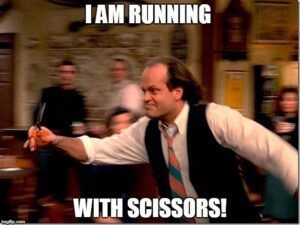
Jon-Mikel Bailey: Right? Well, that seems like a good place to end things. And Kerry, I’m gonna let you off the hook, I wanted you to bring the guitar off the wall, and I was gonna ask you to jam while I hit my conga behind me.
Kerry O’Shea Gorgone: I would be like, “okay, go” and then you would have gone and I just wouldn’t.
Jon-Mikel Bailey: Yeah, I think everybody would thank us for not doing that. But I really do appreciate both your time. And I think for me, you know, just reinforces what I’ve been thinking and what I’ve been telling our clients, which is, you know, if you’re not passionate about it, if you don’t see joy in it, and then you don’t see you know, that your audience is really gonna come away with something after having watched or listened to it, then maybe you shouldn’t do it.
So hopefully, because of this, we’ll get better quality podcasts in the business world. I don’t know, we’ll see. Depends on how many people experience this thing. So thank you all very much. I really do appreciate you coming on.
Chris Brogan: Thanks for having us, Jon.
Kerry O’Shea Gorgone: Yes, JMB, the hizzy, notorious JMB.
Jon-Mikel Bailey: This is the zoom wave.
